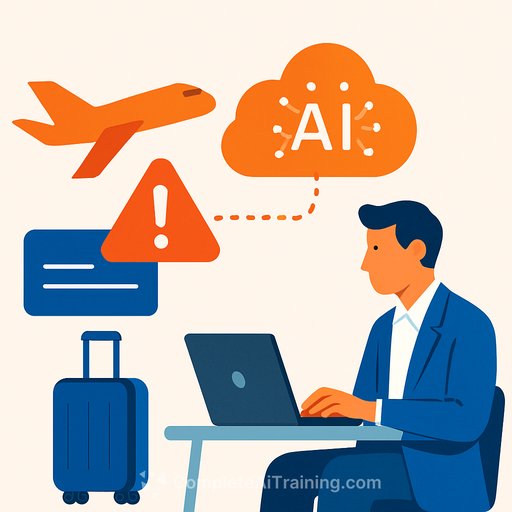Travel Smarter: How Lumo Uses AI to Predict and Prevent Disruptions Before They Happen
Business travel has picked up again—and so have delays. From missed meetings to stressed travelers and overwhelmed support teams, flight disruptions cost more than just time. They reduce productivity, increase corporate expenses, and erode traveler confidence. Whether you’re a frequent flyer, a travel manager, or an agency leader, disruptions have become a constant challenge. A recent TravelPerk survey reveals that 8 out of 9 business travelers experienced at least one disruption in the past year—a clear sign that delays are now a regular part of travel.
The True Cost of Disruption: What the Data Shows
Flight disruptions aren’t rare. They happen often and with serious consequences:
- 78% of business travelers faced delays in the past year
- 43% experienced delays longer than an hour
- 85% reported lost productivity
These numbers translate into real-world issues: missed meetings, extended layovers, extra hotel nights, and travelers questioning the value of their trips. For agencies and suppliers, disruptions increase workload, inflate costs, and hurt reputations. Employers see impacts on budgets, morale, productivity, and employee retention. What travelers want is proactive, reliable, real-time support—before delays occur, not after.
What If You Could Spot a Delay Before It Happens?
This is exactly the problem Lumo addresses. It predicts over 50% of delays before airlines announce them. Lumo uses advanced machine learning models trained on data from millions of flights. It combines real-time information like weather conditions, air traffic control status, airport congestion, and airline performance history to forecast flight delays hours, days, or even months ahead. This isn’t theory—it's AI working in real situations.
At any moment, Lumo scans thousands of flights worldwide, updates its risk assessments, and spots emerging bottlenecks. It alerts users early, giving travelers, agents, and operations teams time to act and prevent cascading disruptions. This approach offers a smarter way to handle delays and a smarter experience for travelers.
“In a market where services compete to simply inform passengers of delays after they have happened, Lumo's offering stands out because they assess the risk of delay before it happens, helping passengers proactively manage their delays instead of simply reacting to them.”
Travelers appreciate Lumo not just because it works, but because it restores a sense of control.
Your membership also unlocks:






